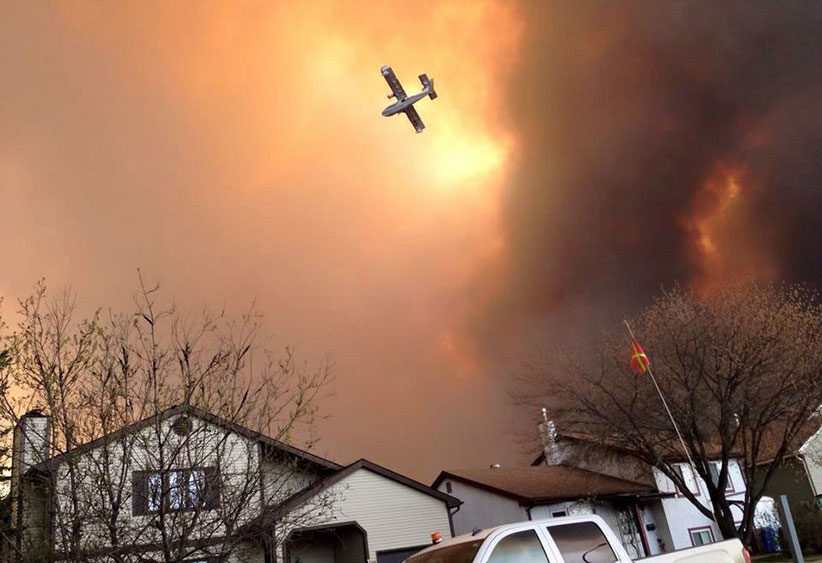What does home insurance cover?
The good and bad news about standard policies
Smoke fills the air as a small plane flies overhead in Fort McMurray, Alberta on Tuesday May 3, 2016. Raging forest fires whipped up by shifting winds sliced through the middle of the remote oilsands hub city of Fort McMurray Tuesday, sending tens of thousands fleeing in both directions and prompting the evacuation of the entire city. (Kitty Cochrane/CP )
Share

Nothing is as traumatizing as losing your home. That’s what the residents of Fort McMurray, Alta., are having to deal with because of extreme wildfires that have destroyed their houses and caused a mass evacuation of more than 88,000 people.
Of course, most homeowners likely had home insurance but what exactly does the policy cover? “Standard polices, which are the policies most average Canadians carry, all cover the rebuilding of the same-size home that was destroyed,” says Adam Mitchell of Mitchell and Whale Insurance Brokers in Whitby, Ont. That’s all.”
But rebuilding on their land in Fort McMurray may not be desirable to a lot of residents of the flame-engulfed community, who may not have jobs to go home to when the fires have cleared. Would standard home insurance policies cover them if they chose to rebuild their home somewhere else? “Unless it’s a higher value home policy, then no,” says Mitchell. “Standard home insurance policies don’t cover this option. Only higher-value home policies do.”
Higher-value homes are generally those that cost more than $1 million in construction costs to rebuild. “In those cases, home insurance would pay for a $1 million rebuild of your original home or offer these owners a cash value for their property,” says Mitchell. “They’ve paid a higher premium for the cash-out option on these homes.”
Track your expenses
In either case, the good news is that your insurance company will pay for all your living expenses until your new home is built and ready for you to move back in. It also covers the cost of possessions you had in your home and living expenses incurred while unable to stay in your residence. That means the tab for all living expenses, including rent and utilities, will be picked up by your home insurer. The key is to track all expenses and keep all invoices while waiting for the rebuild.
But one thing your insurer will not cover is the cost of any mortgage payments owners have to make on their home. “Insurance companies don’t take over these payments,” says Mitchell. “Just like credit card payments and other bank loans, you’re on the hook for making your monthly mortgage payment and paying off your mortgage yourself.”